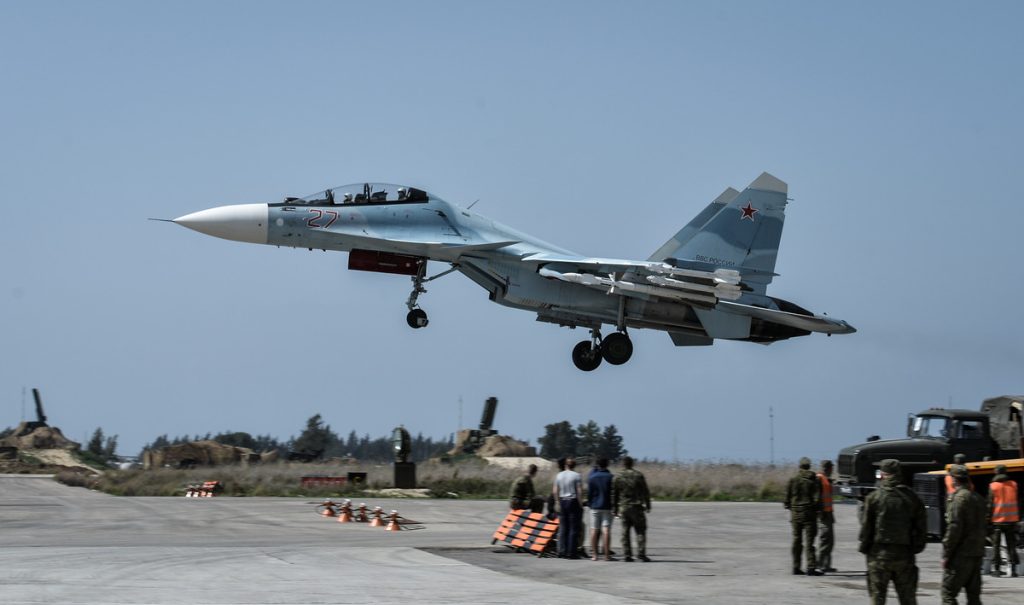Surprise rebel assaults in northwestern Syria pose a potential distraction for Russia amid the ongoing war in Ukraine, leading to questions about whether this diversion could serve as a crucial advantage for Kyiv. The insurgent group Hayat Tahrir al-Sham, labeled as terrorists by the United States, initiated a swift offensive against the Assad regime, a close ally of Russia. This assault targeted significant locations such as Aleppo—Syria’s second-largest city—and the strategically vital Hama province. The Syrian conflict, although not officially resolved, had seen a period of stagnation; estimates from the United Nations cited over 300,000 civilian deaths within the conflict’s first decade. The Russian military had played a decisive role in bolstering the Assad regime since the conflict’s inception in 2011 and notably increased its involvement through airstrikes from 2015 onwards.
The recent escalation has taken both the Assad regime and its Russian backers by surprise, with reports indicating minimal resistance from government forces at the onset of the attacks. After losing ground, Assad’s military announced that it led a mass retreat to reinforce its defensive positions, preparing to counterattack the insurgents. According to the Syrian Observatory for Human Rights, rebels made significant territorial advances around Hama. Reports emerged of military reinforcements arriving at various frontlines, as the Syrian army aimed to reclaim lost territories seized by these rebel organizations. The dynamics of the situation in Syria are critical; with Russia’s military resources split between Syria and Ukraine, analysts ponder the implications for both conflicts.
With the Wagner Group—a private military entity once influential in both Syria and Ukraine—now disbanded, the assistance Russia provides to Assad may be strained. Analysts note that any additional commitment from Moscow to Syria might significantly stretch its military capacity. Ukraine’s military intelligence has indicated that fresh personnel from private military companies are being sent to Syria, yet independent verification remains elusive. The situation emphasizes a precarious balance for Russia; although they have a vested interest in supporting the Assad regime, their focus on Ukraine remains paramount, especially given the ongoing conflicts in eastern Ukraine, where Russian forces have been reportedly gaining ground.
While a potential depletion of Russian resources in Syria could offer some benefits to Ukraine, experts caution that the scale of the fighting in Syria pales compared to the confrontation in Ukraine. As such, despite any diversion, the overall operational capabilities of Russian forces in Ukraine are unlikely to be dramatically affected. Political analysts argue that the consequences of rebellion in Syria may resonate more symbolically than materially for Ukraine. Observed infighting or instability on the part of Russia could bolster Ukrainian morale, as any perceived weakness from the Kremlin could undermine Putin’s domestic and external standing.
The impact of ongoing conflicts, including potential evacuations from strategic bases like Tartus, indicates a shifting focus for Russia. Reports suggest that Moscow may be downsizing its naval presence in Syria, possibly redirecting resources to reinforce other strategic areas back in Russia. Moreover, a notable concern remains about the implications for Russian morale; Ukrainian intelligence highlighted how recent rebel successes are affecting Russian military personnel’s spirits in Syria. This could influence the operational effectiveness of Russian forces both in Syria and Ukraine.
Ultimately, while the developments in Syria may momentarily distract Russia from its commitments in Ukraine, the extent to which this transition will alter the dynamics of warfare remains contested. Analysts emphasize that, despite the outbreak of renewed conflict in Syria, the focus for Western allies should be on the strategic importance of maintaining support for Ukraine. Any shifts in Russia’s engagement in either theater of war warrants close observation, as they could have ripple effects that influence the broader geopolitical landscape in the region. The continuing struggle between Ukrainian forces and Russian-backed regimes highlights the complex interplay of local conflicts with broader international security challenges.

